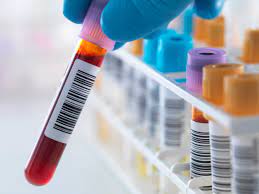This is how the AI article summary could look. Lorem ipsum dolor sit amet, consectetur adipiscing elit, sed do eiusmod tempor incididunt ut labore et dolore magna aliqua. Ut enim ad minim veniam, quis nostrud exercitation ullamco laboris nisi ut aliquip ex ea commodo consequat.
A normal blood potassium level

Most potassium (98%) in the body is intracellular – with a small proportion in the extracellular compartment. Therefore the blood potassium level only a reflection of the more important (intracellular) level.
Normal blood potassium level
Normal human blood potassium level is 3.5-5.3 mmol/L.
- A high blood potassium level (hypokalaemia) is over 5.3 mmol/L
- Mild (5.4-6.0 mmol/L) – concern
- Moderate (6.1-6.5 mmol/L) – requires action today
- Severe (>6.5 mmol/L) – requires hospital admission and action today.
- A low blood potassium level (hyperkalaemia) is under 3.5 mmol/L
- Mild (3-3.4 mmol/L) – concern
- Moderate (2.5-2.9 mmol/L) – requires action
- Severe (<2.5 mmol/L) – requires action today.
Causes of high blood potassium (hyperkalaemia)
- Medications (commonest cause): potassium-sparing diuretics (e.g. spironolactone), ACE inhibitors, beta-blockers, NSAIDs, digoxin.
- Kidney disease: AKI (especially rhabdomyolysis (muscle breakdown) and/or long lie), CKD, nephrotic syndrome, renal tubular acidosis (Type IV RTA; rare).
-
Hormonal imbalance: hypoaldosteronism, adrenal insufficiency (e.g. Addison’s disease).
- Cell lysis: major trauma, burns, tumour lysis syndrome.
-
Metabolic acidosis: e.g. diabetes (DKA), lactic acidosis, salicylate overdose, AKI.
- Upper GI bleeding.
-
Genetic disorders: hyperkalemic periodic paralysis (rare).
Note. High dietary potassium intake is a rare cause.
Note. Factitious hyperkalaemia can occur if the sample bottle is shaken or there is delay taking it to the laboratory.
Causes of low blood potassium (hypokalaemia)
Note. Low dietary potassium intake is a rare cause.
Other resources
